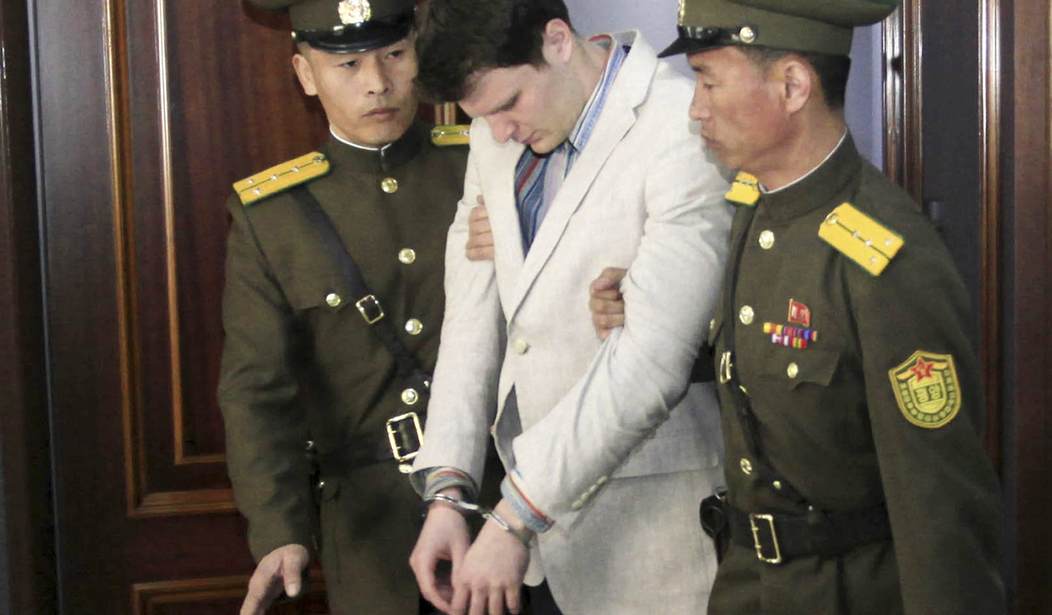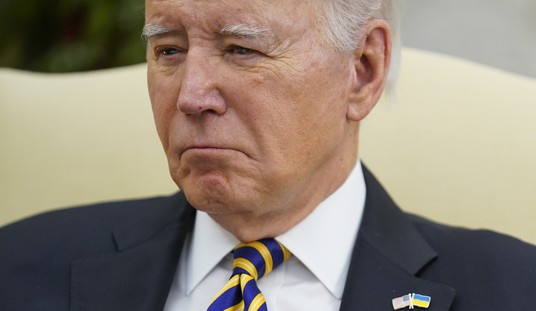Refusing to answer proper questions in a legitimate governmental hearing is contemptuous — not just in the rhetorical sense but in the legal sense. To analogize: In court proceeding, if a witness refuses to provide a responsive answer to a question, the judge will strike the non-responsive answer from the record and direct the witness to address the question head-on. If the dodging persists, the witness can be held in contempt and imprisoned. Such episodes may also form the basis for an obstruction-of-justice charge.
It is just as illegal to obstruct a congressional proceeding.
Contempt of Congress and obstruction of the Senate’s constitutional advice-and-consent obligation is the only way to interpret the performance of Samantha Power during Wednesday’s hearing on her nomination by President Obama to become U.S. ambassador to the United Nations.
Power has a long history of decrying “crimes committed, sponsored, or permitted by the United States.” Of demanding that the United States apologize for its sundry “sins.” Of condemning “the role U.S. political, economic and military power has played in denying such freedoms to others.” Of calling for “not tweaking but overhauling” of U.S. foreign policy. Of seeking to subordinate American national interests to “the interests of the global commons.” Of expressly calling for the U.S. to surrender sovereignty to international institutions (such as the U.N. and the International Criminal Court). And of agitating for “a historical reckoning” of America’s alleged crimes. Not content with various American acts of contrition, she would have our government institute “a doctrine of the mea culpa” as a pillar of our foreign policy. By her lights, at least up until this week’s confirmation conversion, our nation is an arrogant, exploitative serial criminal with much to apologize for.
With that as background, we turn to Ms. Power’s exchange with Senator Marco Rubio at the hearing. Power Line’s Scott Johnson recounts it well. The senator tried to assess the nominee’s fitness and inclination to represent American national interests at the U.N. — rather than the U.N.’s interests at the White House — by probing Power’s assertions about America’s overarching criminality and her specific allegation that “I would categorize the Rwanda situation as a crime … permitted by the United States.” Power’s obdurate refusal to answer the questions is summarized by Fox News as follows. Rubio asked Power, “Which [crimes] did the U.S. commit or sponsor that you were referring to?”
“Again sir, I think this is the greatest country on Earth,” Power responded. “We have nothing to apologize for.”
Rubio wasn’t placated with the nebulous reply, pressing her to explain further, saying, “So, you don’t have any in mind now…”
“I will not apologize for America. I will stand very proudly, if confirmed, behind the U.S. placard,” said Power.
Just when it appears the exchange may be over … think again. Rubio trudges onward. “I understand,” he says, “but do you think the U.S. has sponsored crimes…?”
“I believe the U.S. is the greatest country on earth,” Power reiterates.
And on it went.
Now, I confess that I have not been as outraged by the Power nomination as a number of my friends, who are campaigning vigorously against it. Mind you, I am no Power fan. I’m quite sure she’d be dreadful. But the problem here is not so much the quality of this particular nominee — who happens to be a powerful influence on Obama, the guy making policy, and will remain one regardless of what administration post she fills. The main problem is the U.N. itself. It is an anti-American institution, an international enterprise in eroding the sovereignty, liberty and security of the American people — with a big old bull’s-eye on the Bill of Rights.
I don’t believe in permanent international institutions. They serve the interests of the institutions, not the American people. We’d be much better served by ad hoc collaborations with real allies — collaborations that lapse when the transient conditions for entering them lapse. Geopolitics presents countless scenarios in which China, Russia, the 57-government Organization of Islamic Cooperation, and even our occasionally cantankerous European friends can frustrate our national interests. Why, in addition to all that, we should cede them legal rights to undermine us, and pay dearly for the privilege, is a mystery to me.
Consequently, I don’t think we should participate in the U.N. scheme at all. But the bipartisan Beltway clerisy is hyper-invested in it — much more so, I’d wager, than the public — so I am not daft enough to think we are going to pull out any time soon. That being the case, I would certainly see the sense in supporting a strongly pro-American ambassador — a John Bolton or Jeane Kirkpatrick who could be trusted in that hostile arena to pursue our vital interests and overmatch the anti-Americans.
With President Obama, in stark contrast, we have an administration that shares the U.N.’s predilections, including its desire that Americans be ruled by transnational progressive pieties, rather than determine their own destiny. As a result, I find myself unable to get worked up over which Obama operative carries out the president’s misbegotten policies at the U.N. The problem is the U.N. and Obama’s affinity for it. To oppose Power for a gig at the anti-American U.N. because she holds opinions that I’m confident Mr. Obama enthusiastically shares would imply that I believe the U.N. would be a better deal for America if only the president would pick one of his other friends. I don’t. If Congress really wants to do something worthwhile, let it work on cutting the U.N.’s funding, blocking its treaties, and enacting laws that protect our constitutional rights against U.N. encroachments. Then Obama and whoever his ambassador is could do less damage.
All that said, though, obstruction of necessary governmental processes is a different, more serious matter. By confirming Ms. Power, the Senate would effectively be saying that congressional hearings are a clown show. Lawmakers would be inviting future witnesses to treat them with the same contempt Ms. Power exhibited. Imagine …
Q: Did you, as an IRS bureaucrat, target conservative groups on orders from your superiors?
A: I think America is the greatest country in the world because it guarantees free expression for all Americans….
Q: Can you tell us what the president was doing between 6pm and 2am while Americans were under siege in Benghazi?
A: The president believes American is the greatest country in the world, and as he has said many times, he takes his duties as commander-in-chief extremely seriously….
Q: Did you, Mr. Attorney General, approve a search-warrant application that represented to the court that a member of the media was not just a witness but had committed a serious felony?
A: I think America is the greatest country in the world because it guarantees freedom of the press in a robust marketplace of ideas.
Q: But didn’t you tell the court that a member of the press had done enough to be prosecuted before telling us under oath that you’d never considered prosecuting members of the press?
A: Well, America being the greatest country in the world and all, I can’t tell you how much I admire the Framers for giving us a Congress I so admire and a court system I so admire so that journalists can do the vital work we all so admire….
You get the drift. Why should anyone ever again answer a significant question in a congressional hearing about a matter of public interest? And why pretend that confirmation hearings are anything other than theater — why convene them at all — if the nominee gets to give the soliloquies of her choosing and thumb her nose at all confrontational lines of inquiry? Those would be the lines most revealing about her suitability, the ones that go to the essence of the Senate’s constitutional duty to evaluate high-level appointees.
I was fortunate to appear before scores of excellent federal judges in many years as a government lawyer. I cannot think of a single one who would have let Samantha Power pull what she pulled in the Senate foreign relations committee on Wednesday. They had too much self-respect.
Does the Senate have any?








Join the conversation as a VIP Member